
A nonprofit organization (NPO), also known as a nonbusiness entity or nonprofit institution, and often referred to simply as a nonprofit, is a legal entity organized and operated for a collective, public or social benefit, as opposed to an entity that operates as a business aiming to generate a profit for its owners. A nonprofit is subject to the non-distribution constraint: any revenues that exceed expenses must be committed to the organization's purpose, not taken by private parties. An array of organizations are nonprofit, including some political organizations, schools, business associations, churches, social clubs, and consumer cooperatives. Nonprofit entities may seek approval from governments to be tax-exempt, and some may also qualify to receive tax-deductible contributions, but an entity may incorporate as a nonprofit entity without having tax-exempt status.

The American Heart Association (AHA) is a nonprofit organization in the United States that funds cardiovascular medical research, educates consumers on healthy living and fosters appropriate cardiac care in an effort to reduce disability and deaths caused by cardiovascular disease and stroke. They are known for publishing guidelines on cardiovascular disease and prevention, standards on basic life support, advanced cardiac life support (ACLS), pediatric advanced life support (PALS), and in 2014 issued the first guidelines for preventing strokes in women. The American Heart Association is also known for operating a number of highly visible public service campaigns starting in the 1970s, and also operates several fundraising events.

The Leukemia & Lymphoma Society (LLS), a 501(c)(3) charitable organization founded in 1949, is a voluntary health organization dedicated to fighting blood cancer world-wide. LLS funds blood cancer research on cures for leukemia, lymphoma, Hodgkin's disease, and myeloma. It provides free information and support services, and it advocates for blood cancer patients and their families seeking access to quality and affordable care.
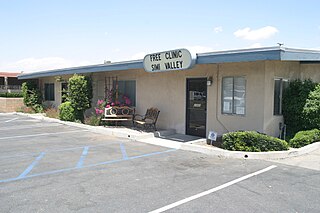
A free clinic or walk in clinic is a health care facility in the United States offering services to economically disadvantaged individuals for free or at a nominal cost. The need for such a clinic arises in societies where there is no universal healthcare, and therefore a social safety net has arisen in its place. Core staff members may hold full-time paid positions, however, most of the staff a patient will encounter are volunteers drawn from the local medical community.
The National Federation of Independent Business (NFIB) is an association of small businesses in the United States. It is headquartered in Nashville, Tennessee, with offices in Washington, D.C., and all 50 state capitals. The stated goal of NFIB is to advance the interests of small businesses. There has been debate about how representative of American small businesses NFIB is, noting its very conservative and pro-Republican record.
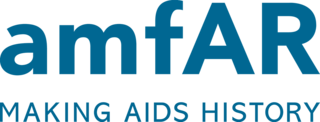
amfAR, the Foundation for AIDS Research, known until 2005 as the American Foundation for AIDS Research, is an international nonprofit organization dedicated to the support of AIDS research, HIV prevention, treatment education, and the advocacy of AIDS-related public policy.

The American Telemedicine Association (ATA), established in 1993, is a non-profit organization whose goal is to promote access to medical care for consumers and health professionals via telecommunications technology. Membership in the American Telemedicine Association is open to individuals, companies, and other healthcare and technology organizations.

The National Psoriasis Foundation (NPF) is one of the world's largest nonprofit organization serving people with psoriasis and psoriatic arthritis. The NPF provides information and services to help people manage their condition while supporting research to find a cure. In addition to serving more than 3 million people annually through patient and professional health education and advocacy initiatives, the NPF has funded more than $10 million in psoriatic disease research grants and fellowships.
Patient advocacy is a process in health care concerned with advocacy for patients, survivors, and caregivers. The patient advocate may be an individual or an organization, concerned with healthcare standards or with one specific group of disorders. The terms patient advocate and patient advocacy can refer both to individual advocates providing services that organizations also provide, and to organizations whose functions extend to individual patients. Some patient advocates are independent and some work for the organizations that are directly responsible for the patient's care.
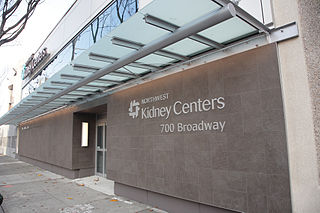
Northwest Kidney Centers is a regional, not-for-profit community-based provider of kidney dialysis, public health education, and research into the causes and treatments of chronic kidney disease. Established in Seattle in 1962, it was the world's first out-of-hospital dialysis provider. It offers dialysis throughout the greater Seattle area in 20 free-standing clinics, eight hospitals and its home dialysis program. It opened its first clinic in Everett in 2020, the organization's first in Snohomish county.
The Oregon Health Plan is Oregon's state Medicaid program. It is overseen by the Oregon Health Authority.
The Emergency Medical Services for Children (EMSC) program is a US federal government health initiative. It is administered by the U.S. Department of Health and Human Services’ Health Resources and Services Administration (HRSA), and the Maternal and Child Health Bureau (MCHB). Its aim is to reduce child and youth disability and death due to severe illness or injury by increasing awareness among health professionals, provider and planners and the general public of the special needs of children receiving emergency medical care.
West Health is a group of non-profit organizations in the United States that is working to lower healthcare costs so that seniors can successfully age in place.
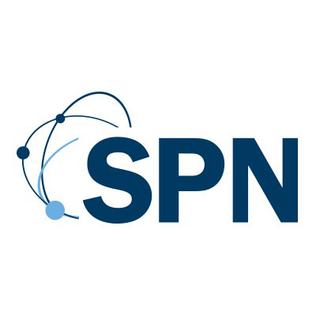
The State Policy Network (SPN) is a nonprofit organization that serves as a network for conservative and libertarian think tanks focusing on state-level policy in the United States. The network serves as a public policy clearinghouse and advises its member think tanks on fundraising, running a nonprofit, and communicating ideas. Founded in 1992, it is headquartered in Arlington, Virginia, with member groups located in all fifty states.
The Pancreatic Cancer Action Network (PanCAN) is a United States-based 501(c)(3) charity that funds research, provides patient/caregiver support, conducts community outreach and advocates for increased federal research funding for those affected by pancreatic cancer.
The Northwest Portland Area Indian Health Board (NPAIHB) is a non-profit tribal advisory organization in Portland, Oregon, run and organized by participating tribes. It was established in 1972 to focus on four areas as they pertain to the health of Native people: health promotion and disease prevention, legislative and policy analysis, training and technical assistance, and surveillance and research. It serves 43 federally recognized tribes in Oregon, Washington and Idaho, with each tribe appointing a delegate to the board that oversees the NPAIHB. The board meets quarterly to discuss current projects and issues.
Hearing Health Foundation (HHF) is a 501(c)(3) nonprofit organization. In 2011, the Deafness Research Foundation changed its name to Hearing Health Foundation.
Arnold VenturesLLC is focused on evidence-based giving in a wide range of categories including: criminal justice, education, health care, and public finance. The organization was founded by billionaires John D. Arnold and Laura Arnold in 2010.

Esther Choo is an emergency physician and professor at the Oregon Health & Science University. She is a popular science communicator who has used social media to talk about racism and sexism in healthcare. She was the president of the Academy of Women in Academic Emergency Medicine and is a member of the American Association of Women Emergency Physicians. She was a co-founder and a board member of Time's Up. On February 26, 2021, Choo was named in a lawsuit against OHSU alleging that Choo failed to take action when she was made aware of an alleged sexual assault involving Dr. Jason Campbell, who became popular on TikTok during the COVID-19 pandemic.
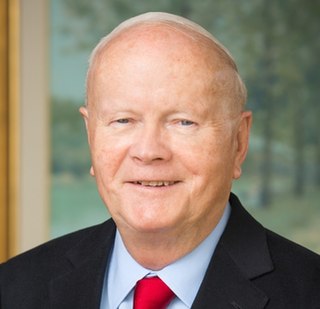
Earle Meyer Chiles was an American businessman and philanthropist from the US state of Oregon. He was born into a wealthy and influential business family. Chiles attended Menlo College and then graduate school at Stanford University. He worked in his family's retail business in Oregon, including serving on the board of directors of Fred Meyer, a large retail company founded by his grandfather. He was also chief executive officer of Earle Chiles and Affiliated Companies and president of the Chiles Foundation. Over the years, he contributed financially to numerous educational institutions and non-profit organizations.











